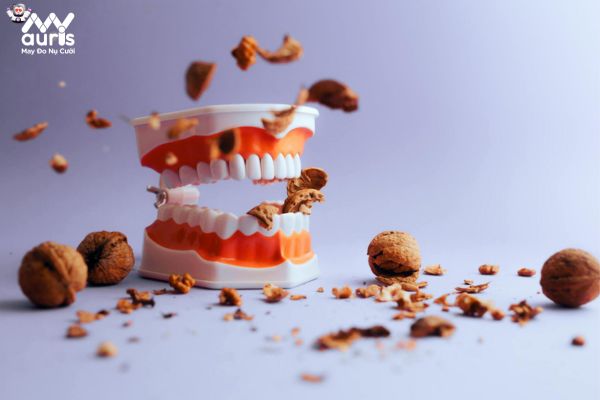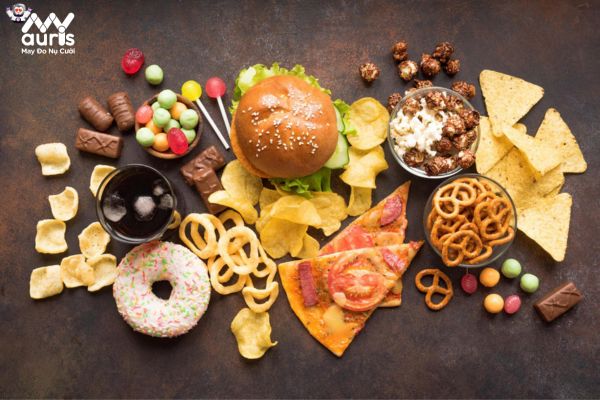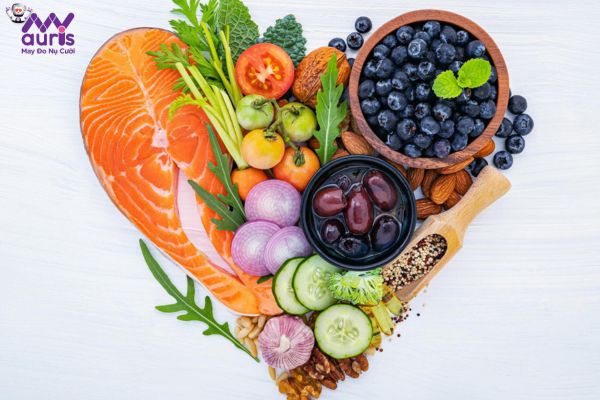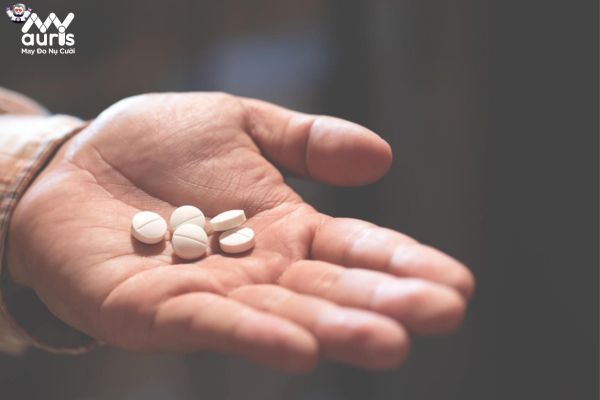The mouth is the first organ to carry out the process of consuming food in large, rough form. At the same time, the tooth socket location after extraction is often very sensitive and prone to bleeding. It increases the risk of infection after tooth extraction and dangerous complications. Therefore, what should you not eat after having a tooth extracted? Let’s refer to the information in the article, dentist My Auris will help you get the correct answer.
What should you not eat if you have just had a tooth extracted?
For the tooth socket to fully recover, it usually takes 1 to 2 weeks. In particular, within the first 24 hours after tooth extraction will be very important. At this time, patients need to be careful in choosing food to help the wound heal quickly and avoid post-operative complications. Specifically, if you have just had a tooth extracted, you should pay attention to avoiding the following foods:
Tough and tough foods

This is a food that cannot be ignored after tooth extraction. When you eat these foods, it will affect your oral structure. Specifically, to eat tough, hard foods such as cookies, grilled squid, etc., the jaw muscles will need to be active, creating an impact on the jaw. From there, leading to toothache, the wound can tear again.
At the same time, hard and chewy foods easily leave plaque on the teeth, creating a favorable environment for bacteria to invade and cause infection after tooth extraction.
Prepared foods such as canned foods, instant noodles,… all contain many additives. At the same time, the amount of spices such as salt and sugar is difficult to control, affecting the healing process in the newly extracted tooth socket. Specifically, foods with high amounts of salt will cause wounds to heal slowly. On the other hand, what is more dangerous is swollen tooth roots due to salt retaining water in the patient’s body.
Furthermore, consuming too much salt will increase blood pressure. High blood pressure is a factor that damages small blood vessels, including blood vessels at the roots of teeth.
Foods containing a lot of sugar
Cake, soft drinks,… are foods that people after tooth extraction need to stay away from, to ensure the wound heals completely. Sweets that contain a lot of sugar are commonartificial sweeteners. With the ability to stimulate inflammation around the tooth socket, prolonging wound recovery time. From there, dangerous health complications increase.
Foods containing a lot of saturated fat

Good saturated fat Also known as saturated fat, it is always harmful to health. Especially in post-operative patients. Foods high in saturated fat such as fried foods, pizza, etc. will affect the wound in the tooth socket and the entire body.
Eating a lot of foods containing saturated fat will increase cholesterol levels in the blood. This means that the amount of LDL-C (low density lipoprotein cholesterol or low density cholesterol) – bad fat will increase and accumulate in the blood. The more LDL-C accumulates, it will gradually form sticky plaque in the blood vessels. From there, it causes blockage of blood vessels and affects the blood clotting process, leading to many other diseases such as stroke, blood fat,…
Foods containing stimulants and alcohol
There are drinks that contain alcohol and stimulants such as coffee, beer, wine, cigarettes, etc. They should not be on the menu after tooth extraction, especially for male patients. They need to avoid using alcohol for 6 to 8 days after tooth extraction.
These foods have the ability to thin the blood and slow down the rate of blood clotting, causing wounds to heal slowly. Besides, these stimulating drinks also have a negative impact on the body’s immune system. From there, the patient will have an increased risk of infection after surgery.
What should I supplement after tooth extraction?
Oh, the tooth root after extraction is often quite sensitive, and wounds are easily injured. The mouth is where eating and drinking activities take place. Patients need to wait 4 to 5 hours before eating again and starting with soft foods.

Besides, to restore the wound, avoid infection after tooth extraction. Patients need to pay attention to what they should not eat and what supplements they should take before having their teeth extracted. To know for sure what to eat after tooth extraction, you need to refer to the following foods:
- Soft foods: 2 to 4 hours after tooth extraction, you need to avoid tough foods but should choose soft, easy-to-swallow foods such as soup, porridge, soup, etc. To help the jaw muscles rest, avoid too much movement, affecting the wound.
- Cool and cold foods: Cool foods will help you reduce swelling and edema at the site of the extracted tooth root. At the same time, it effectively helps stop bleeding and reduces toothache pain. Foods such as yogurt, smoothies, etc. are healthy choices.
- Foods containing good fats, unsaturated fats: Foods such as olive oil, salmon, avocado,… contain a lot of unsaturated fats, or healthy fats such as omega 3, 6, 9 fatty acids,… Good fats always support health as well as safe healing.
What should you do after an extraction?
Along with what you should not eat and what you should eat after a tooth extraction, proper oral hygiene is also very important. To eliminate bacteria in the oral cavity, avoid infection and affect healing time.

Take medication as prescribed by a specialist
When you feel pain at the site where your tooth was extracted, many people arbitrarily buy painkillers to take. However, this is something that should not be done. Buying medicine without instructions from a doctor can cause side effects such as fatigue, headaches, stomach pain, etc. Therefore, you need to use medicine as prescribed by your doctor to effectively reduce swelling and pain.
Ice cold after tooth extraction
To soothe wounds and pain, on the first day you should apply a cold compress around the tooth extraction site. In the following days, you should apply warm compresses to help dissolve the bruised area.
Drink plenty of water
Drink at least 2 liters of water every day. day, this habit will help keep your mouth moist. From there, avoid bacteria and growth conditions that can make the wound infectedToothache often causes alveolar inflammation.
Pay attention to oral hygiene every day
When you first have a tooth extracted, do not You should rinse your mouth with salt water or mouthwash. Because it can slow down the blood clotting process. You should rinse your mouth normally with water and avoid too much impact on the wound.
After tooth extraction, you need to gently clean your teeth with a soft-bristled toothbrush. At the same time, use dental floss to remove food particles. All operations must be careful to avoid damaging the newly extracted tooth area.
If carefully cared for, the wound after extraction will heal quickly in 1 to 2 weeks. At this time, you can completely eat and live as normal.
The above is the information that you need to keep in mind when you have just had a tooth extracted, what should you not eat? When you visit a doctor when you have a tooth extracted, you will also be instructed and prescribed scientific food supplements. It is important that you follow your doctor’s instructions to avoid unwanted complications. At the same time, you should only have tooth extraction done at reputable dentists to avoid negative health effects.
Yen Nhi





